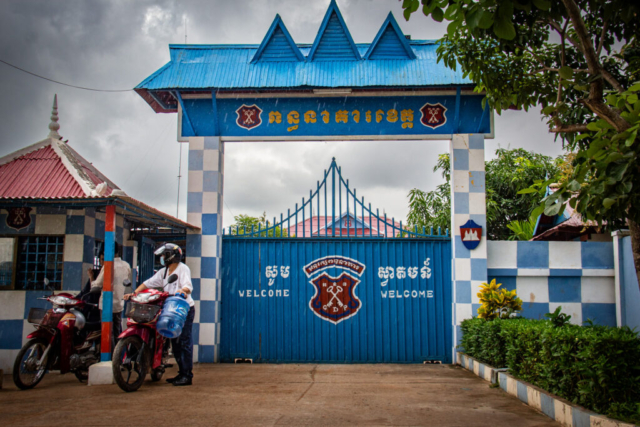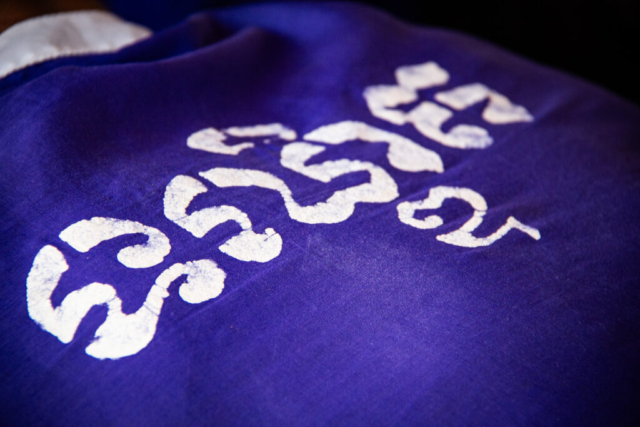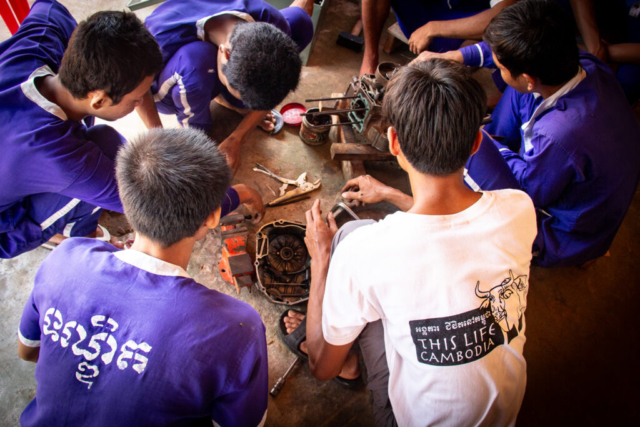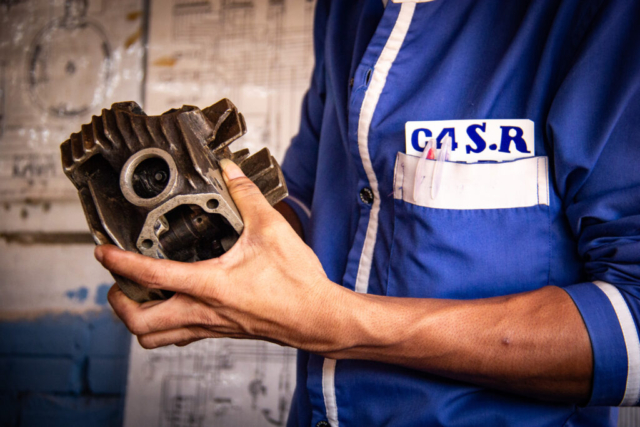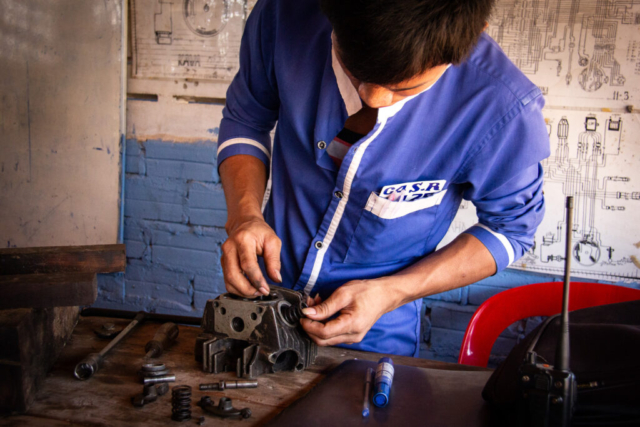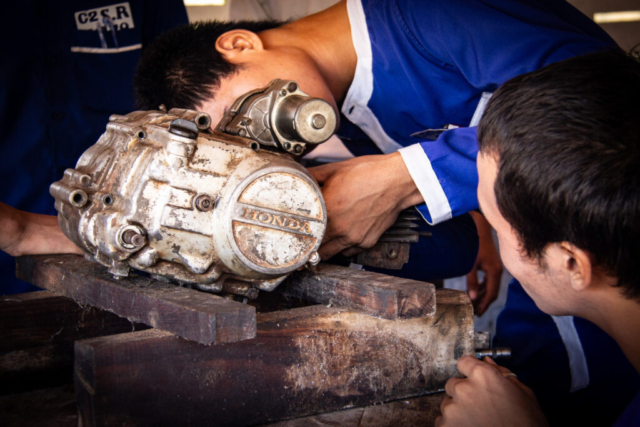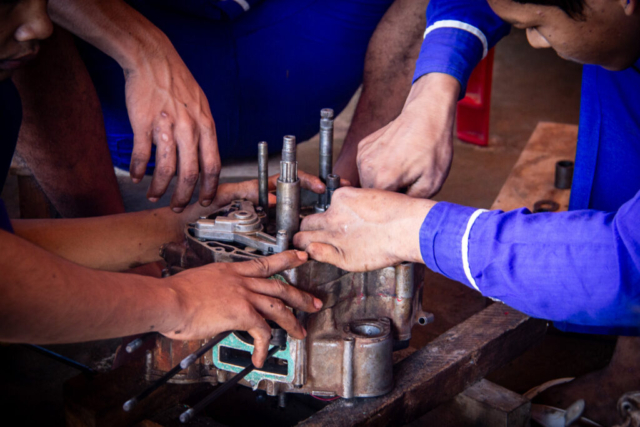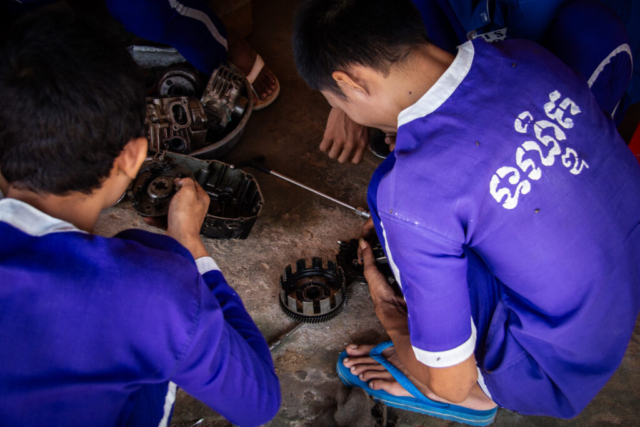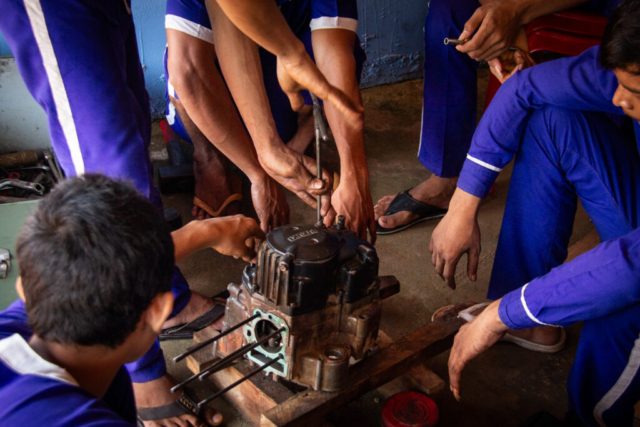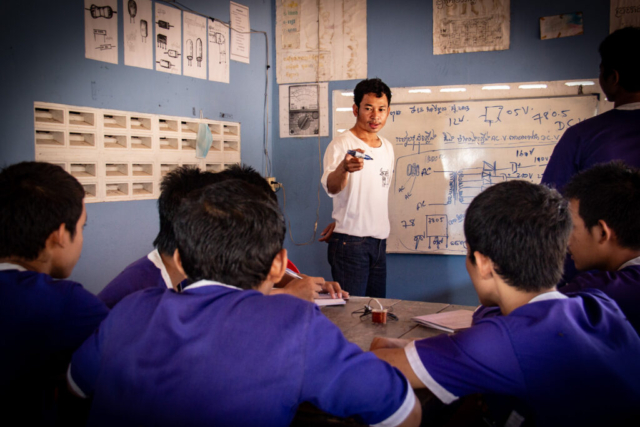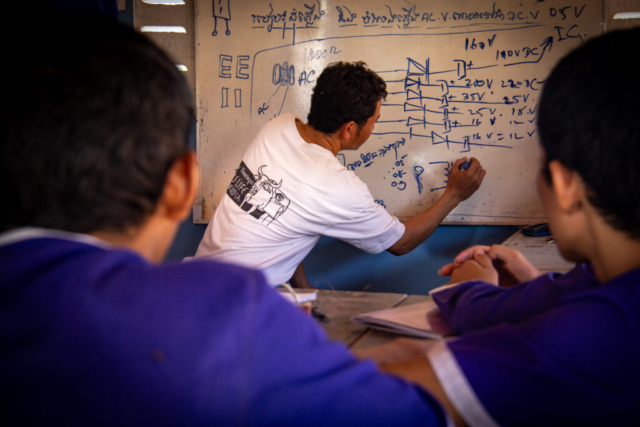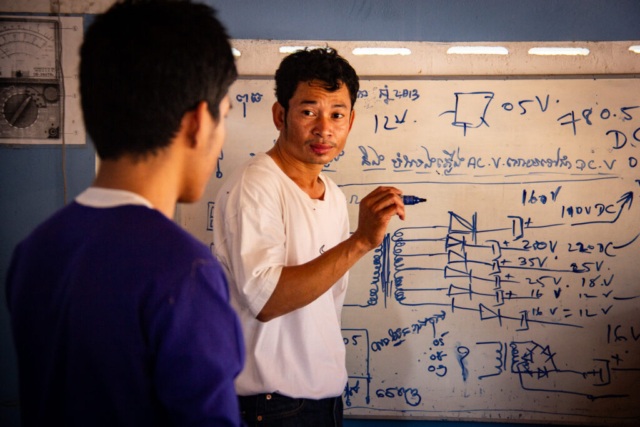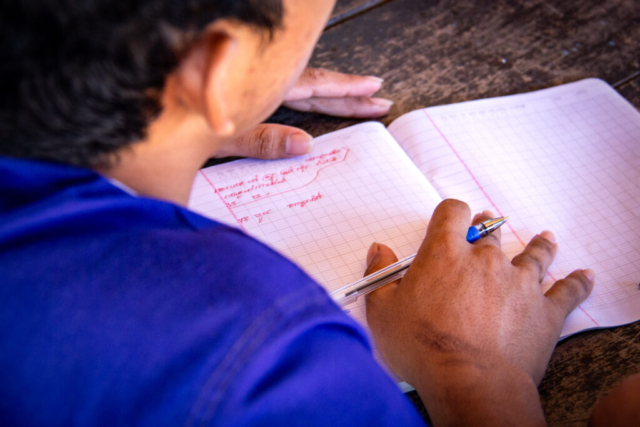Read more about the work of This Life Cambodia on their website: thislife.ngo
This Life Beyond Bars
November 2013
In 2013 I worked with an organisation called This Life Cambodia and was given an assignment to visit Siem Reap prison to photograph their This Life Beyond Bars vocational training program for juveniles held in the prison. The aims of the program is help juveniles upon leaving prison to be successfully reintegrated into society with opportunities of a career and to be accepted to avoid the vicious spiral of reoffending and a life in crime.
We were under strict orders to only take photos of the participants of the two workshops that form part of the training program – the workshops are located inside the prison complex, but a wall still separated us from the main prison. We had to approach the assignment with respectful and careful sensitivity and all the necessary permissions were obtained before our visit to the prison. We were also asked to not capture the faces of any of the juvenile prisoners participating in the program that could lead to their recognition.
Unfortunately, This Life Cambodia had recently been informed that the main funder of this particular program, AusAID (Australian Agency for International Development) would be cutting back on funding and this program would likely lose its main sponsor as a result of this. Therefore, the action plan was to create content powerful enough to draw in new donors to ensure this very successful program could continue.
Siem Reap prison is located just on the outskirts of Siem Reap town and is surrounded by vast rice fields. I know there have been severe problems of flooding in the prison in the past (on occasion in the past, some of the walls even collapsed during the flooding season and it was easy to see why!).
We arrived and the first thing that struck us was the beautiful indigo blue colour in which the main gate and the walls of all the buildings have been painted. I expected some bureaucratic hassles at the gate, but there weren’t any: the gates swung open and we drove in. A beautifully kept garden lay in front of us and again for a second I almost forgot where we were! In this area one could see the Prison Director’s office, some administrative offices as well as the visitor rooms (like the ones you see in the movies where there are chairs/ benches on either side of a barred window).
After parking the car we walked around to the area where the vocational training workshops are. The premises were well kept: the footpaths, the gardens as well as all the surrounding buildings (all painted in the friendly blue colour). The garden contained some rather odd items: concrete animals (painted in bright colours) as well as large concrete mushrooms all over the place… Interesting theme!
We were greeted at the first workshop by a group of 7 juveniles as well as the Vocational Trainer (from TLC’s ‘This Life Beyond Bars’ program). The boys (aged 16-20 years) were friendly and all greeted as warmly in a respectful manner, all in their blue uniforms provided by the Prison Services. It really felt like walking into a classroom – no difference whatsoever. The class had already begun when we arrived so the boys returned to their seats and all attention was back on the tutor. We then proceeded to take photos of the class and workshop activities.
The second workshop (moto repair) was adjacent to the first one (electronic repairs – i.e. televisions, DVD players etc) so we moved freely between the two – there were another 8 or 9 participants in the second workshop. We spent close to two hours in the prison.
It was easy to forget where we were and that these boys were in fact here in prison, because they had broken the law. Prison sentences for juveniles can be extremely severe: sentences for stealing something as small and immaterial as a mobile phone can easily be three years. The boys we met were just normal kids, like we were once upon a time too: they made some mistakes and are paying a hefty price for it. I also made mistakes in my life, but I guess I am fortunate that I never ended up on the wrong side of the law. However, I truly saw the rays of hope during our visit: these boys do have a future, a life beyond bars, thanks to the brilliant work that our NGO (and also other NGOs) are doing in the prison. One also has to be appreciative that the prison authorities believe in rehabilitation and allow NGOs to run these programs inside the prison – it is only through their on-going support that these programs can exist. I do not know what goes on inside the rest of the prison; I guess it is a prison like any other with some seriously bad characters all round, but this is not why we went and therefore it is also not for me to judge or voice an opinion.
The program statistics speak for themselves: of the 32 juveniles that have to date participated in the program (and been released) none have reoffended. Before this program the rate of re-offense unofficially stood at 60% reoffending within 6 months.
It would be tragic to lose the funding (for reasons that are not even clear to me) for a program that has been so successful. We can only hope that the donor campaign reaches the right audiences and that funding will be found to ensure these programs can continue, and grow, for years to come.
I am grateful for the opportunity to visit the prison, not for reasons of ‘finding something sensational to write about’, but for a very positive experience; seeing that even in the darkest places there can still be hope. Everybody makes mistakes: some end up in prison because of the severity of the mistake made, but there is no reason why people should not be given an opportunity to be reintegrated into society, as equals, when they have served their time. This program clearly goes beyond merely teaching juveniles a skill: it gives them self-confidence, dignity, joy, camaraderie, purpose and ultimately a better future.
To those involved in the program: keep up your brilliant work – the work often goes unrecognised in the outside world, but you are truly serving your fellow man.
